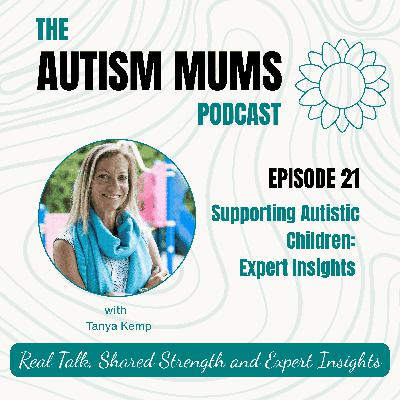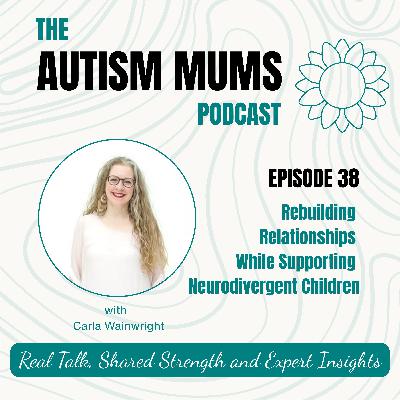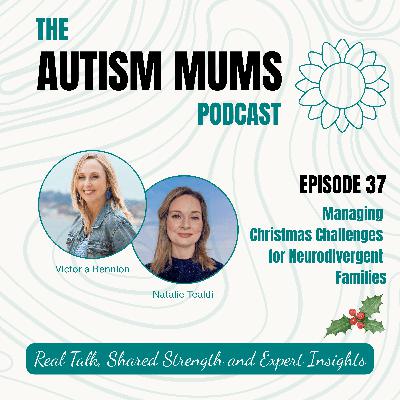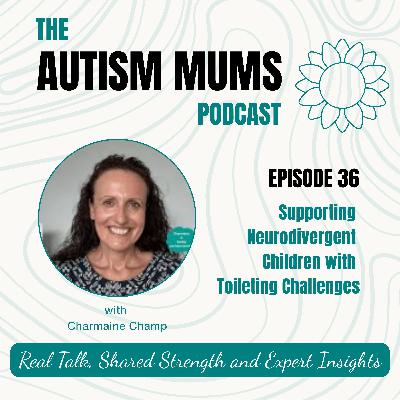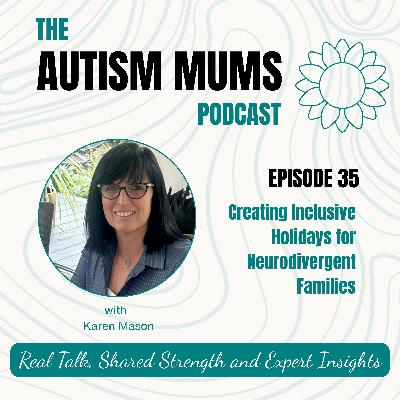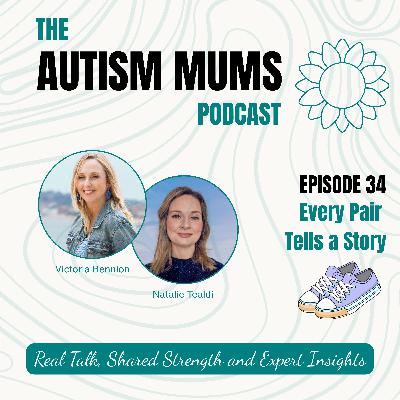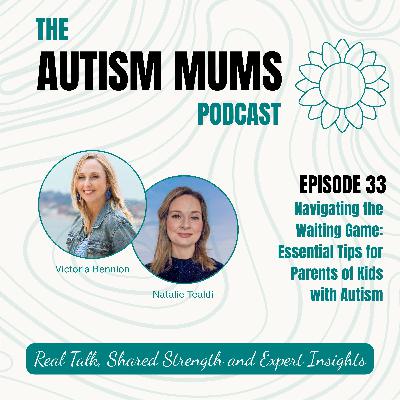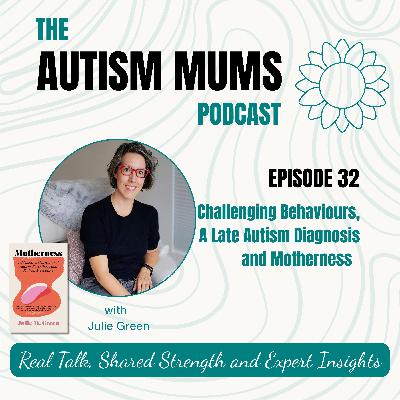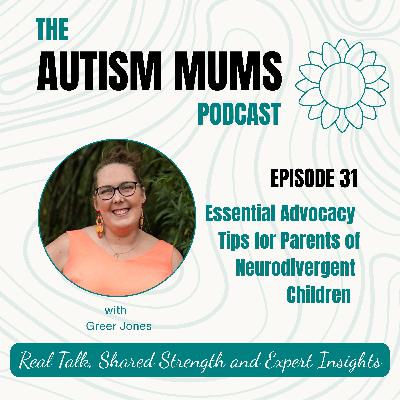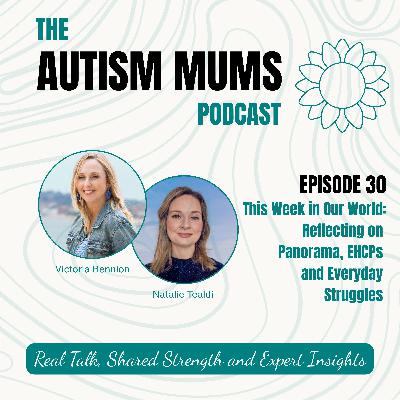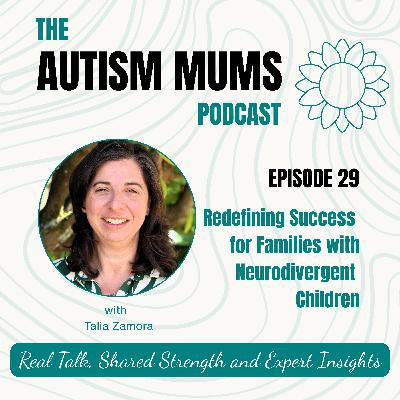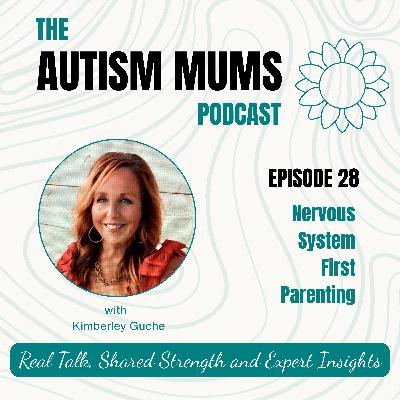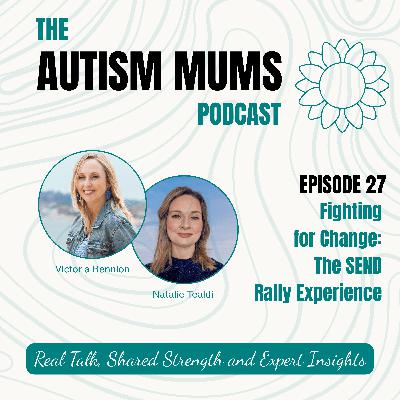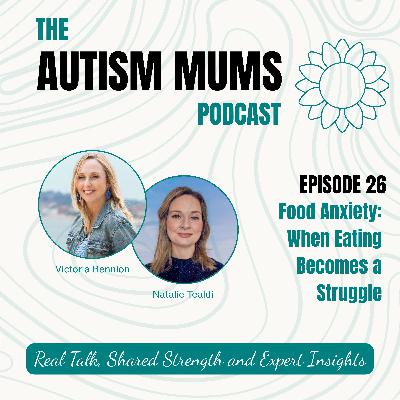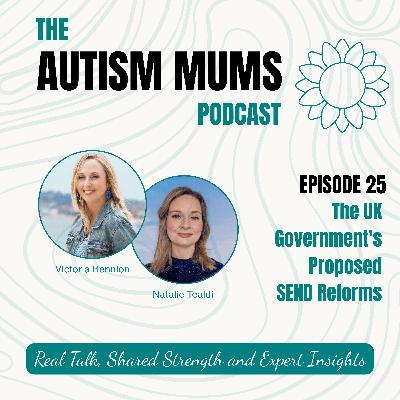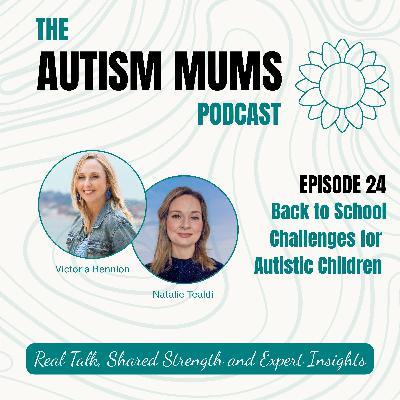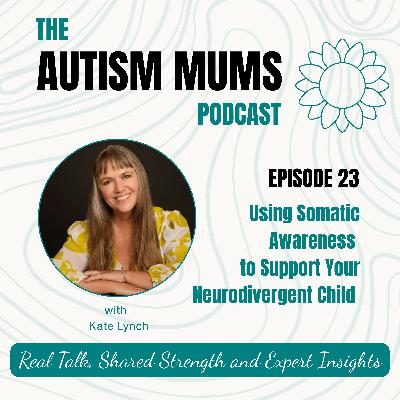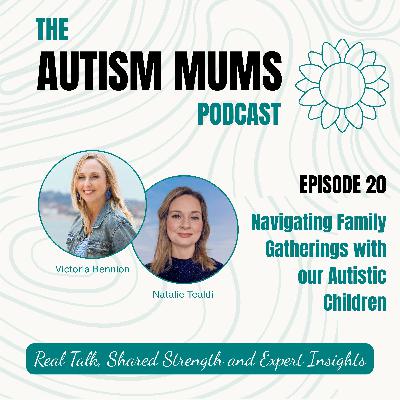Supporting Autistic Children: Expert Insights from Tanya Kemp
Description
We're joined by a really special guest this week, Tanya Kemp. Tanya is a registered counsellor and parent consultant specialising in neurodiversity trauma and the parent Child Connection. Tanya's own journey has equipped her with unique insights on supporting autistic children.
Biography
Tanya Kemp is a registered counsellor and parent consultant, specialising in neurodiversity, trauma, and parent-child connection. With over two decades of clinical experience and additional training in mindfulness, somatic work, and neurodiversity-affirming practice, she supports families raising autistic and neurodivergent children. Tanya is also a solo mum to her 11-year-old autistic daughter, and together they’re traveling the world—learning, living, and world-schooling along the way. Her lived experience, combined with global research and integrative therapeutic approaches, makes her a trusted and compassionate guide for families navigating neurodivergence.
Key Takeaways
Understanding Neurodiversity: Tanya emphasises the importance of recognising and embracing neurodiversity as a valuable aspect of human variation rather than a deficit.
Parent-Child Connections: Building strong relationships with autistic children involves active listening, empathy, and validation of their feelings and experiences.
Practical Strategies for Support: Tanya shares actionable techniques that parents can use to support their autistic children, including creating structured routines and sensory-friendly environments.
Empowering Families: She highlights the need for parents to feel empowered and informed, equipping them with the tools they need to advocate effectively for their children.
Celebrating Differences: Emphasising the uniqueness of each autistic child, Tanya encourages families to celebrate their strengths and individuality.
Community Support: The importance of finding and fostering community connections is crucial for both parents and children, providing a sense of belonging and shared experiences.
Navigating Challenges: Tanya discusses common challenges faced by families and offers insights on how to navigate them with resilience and positivity.
Education and Advocacy: She stresses the role of education in breaking down stereotypes and fostering a more inclusive society for neurodivergent individuals.
Self-Care for Parents: Tanya reminds parents to prioritise their own well-being, as caring for themselves enables them to better support their children.
Continuous Learning: The journey of understanding and supporting neurodiversity is ongoing, and Tanya encourages parents to remain open to learning and adapting as they grow alongside their children.
Connect with Tanya Kemp
Website: https://www.tanyakemp.com/
Facebook - https://facebook.com/parentingautisticchildrenmatters
Instagram - https://www.instagram.com/parentingautisticchildren/
LinkedIn - https://www.linkedin.com/in/tanya-kemp-0b32022ab/
YouTube - https://www.youtube.com/@parentingautisticchildren
Tanya's offers
A 5 day video series on the 5 things every parent should know when their child receives an autism diagnosis.
A free training for parents and carers on the autism brain through the lens that Tanya parents - a neurodiversity affirming lens that really shifts how parents and carers think about their child's day to day challenges and what kind of support they need. Also to understand the neurodiversity movement, ableism and be part of the solution for a better future for autistic people.
You can access these offers via Tanya's website here: https://www.tanyakemp.com/
Connect with The Autism Mums
Follow us on Instagram https://www.instagram.com/theautismmums
Follow us on TikTok https://www.tiktok.com/@theautismmums
Follow us on Facebook https://www.facebook.com/theautismmums
Transcript
[00:00:00 ]
Natalie Tealdi: Hi, it's Natalie. Unfortunately, I was unable to
be in today's interview, but before we begin, I just wanted to say
hello and let you know. It's a really good one. Hopefully you'll
agree
Victoria Bennion: That's right. Today I'm joined by a really
special guest, Tanya Kemp. Tanya is a registered counselor and parent
consultant specializing in neurodiversity trauma and the parent Child
Connection. Tanya's own journey has equipped her with unique insights
on supporting autistic children.
Natalie Tealdi: If you've ever felt overwhelmed or unsure in your
parenting journey, this episode has some really valuable, practical
advice and stories that we hope will be helpful to you.
Okay, let's hand over to
Victoria and Tanya.
Victoria Bennion: Welcome to the podcast, Tanya.
Tanya Kemp: Thank you so much. Thank you for having me.
Victoria Bennion: So you've taken quite an unconventional path, I
guess you would say, in supporting your daughter. So I wondered if
you could start by talking a little bit about your journey with her
and [00:01:00 ] how you found your way to
neurodiversity affirming parenting.
Tanya Kemp: My daughter was really young when I started noticing
differences in her. She was diagnosed autistic when she was just 17
months old, which is quite young. And by that stage I had already
done a master's in psychology and so I was quite attuned to
developmental milestones and what they would look like.
I'd been working with families
with multiple and complex needs already for about 10 years. So I was
already in the field but not specializing in autism in particular.
When she was diagnosed and we were. Basically directed by the
psychologist in terms of this is the therapy that you need to do.
It just didn't really resonate
with me. It just didn't feel to me like this is. What I wanted for my
daughter, you know, for in her terms of her long-term development and
her life. And so I started to dig really deep into all the autism
interventions and what therapy would look like and autism in
[00:02:00 ] particular.
And that kind of steered me on
a path of studying relationship development, intervention and DIR
floor time and Stuart Shanker self reg programs, which was all based
around. Relationships, development and nervous system safety. And
that path really got me into the circles of, really listening to
autistic adults and how autistic adults talk about their experience
of therapy and what that meant for them as adults now in the world.
So I was really very strongly
influenced by that. I spent hours and hours just reading autistic
adult experiences and then. I suppose with my background in
psychology, did a deep dive into the research and what people were
saying and was the gold standard and what they were really measuring
in those gold standard studies.
That's why I decided, what I'm
gonna go with meeting my daughter where she's at. Assuming that she's
competent, assuming that she is [00:03:00 ]
communicating even though it's different to what we would expect her
to do and yes. That's when I started practicing in this area.
And the more I practiced, the
more I learned from the families that I worked with. And that was
helpful because I was able to help families better, but I was able to
help my daughter better and understand her better. So it's been this
dual learning process, both to help others, but really essentially to
help my daughter.
Victoria Bennion: That's really fascinating, so useful that you had
that background as well.
Tanya Kemp: Yes, absolutely.
Victoria Bennion: Who or what would you say has the biggest impact
on autistic children's success?
Tanya Kemp: Parents. I think like every human being that comes
into this world, our parents or primary caregivers are the ones who
has most impact. Nobody. Knows their child better. Nobody is more
invested in their child. And it's always so interesting to me how
parents will doubt themselves in the beginning.
They'll think, oh, I need to
listen to all the professionals. I need to do what people [00:04:00 ]
tell me to do, even when often they will later say. That kind of went
against my gut instinct that went against what I really felt like I
needed to do. And sometimes, it can take years before parents
actually start to trust themselves, right?
Children learn through
relationship and those initial relationships, that first relationship
with the primary caregivers is the most impactful on a child's life,
I think.
Victoria Bennion: Yeah, that makes sense. And what yo

